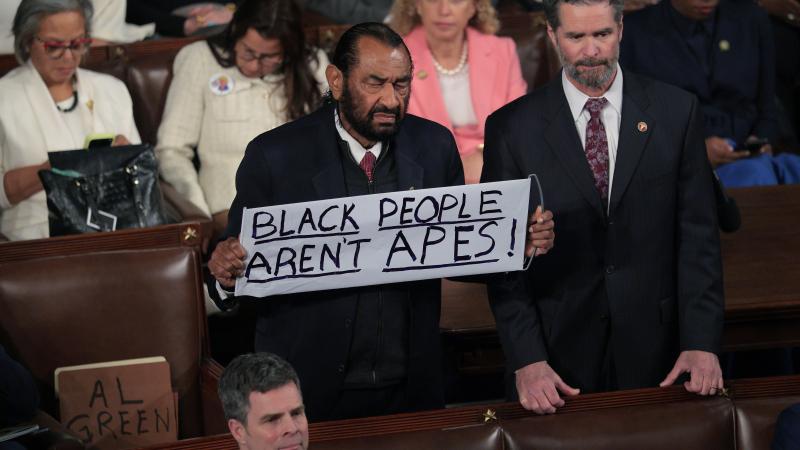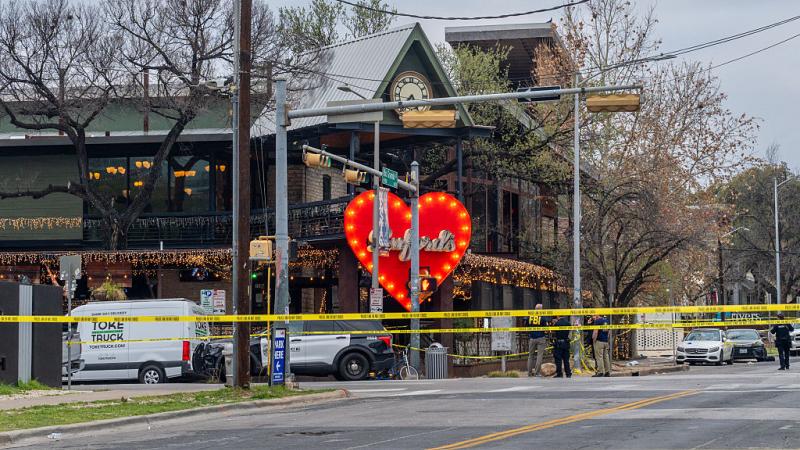Rosenstein agrees that by August of 2017 there was no evidence of Trump-Russia collusion
He agreed that there was 'no "there" there.'
Former Deputy Attorney General Rod Rosenstein conceded on Wednesday that by August of 2017 there was no evidence that the Trump campaign had colluded with Russians to sabotage the 2016 election, even though the investigation into that allegation would persist for another year and a half.
The jaw-dropping admission came during a contentious hearing before the Senate Judiciary Committee, which is actively investigating the F.B.I.'s Crossfire Hurricane investigation that sought to uncover whether Trump campaign officials had colluded with Russian agents to sabotage the 2016 election.
Addressing Rosenstein during the hearing, committee member Sen. Lindsey Graham asked him: "The whole concept, that the campaign was colluding with the Russians, there was no 'there' there in August of 2017, do you agree or not?"
"I agree with the general statement," Rosenstein replied.
The revelation was just one of several bombshells the former deputy attorney general delivered before the committee. Rosenstein in many cases appeared to be admitting that he himself was significantly in the dark about the F.B.I.'s early Russian investigations. At one point he claimed that former F.B.I. Deputy Director Andrew McCabe “was not fully candid with me” regarding bureau proceedings.
He also told the committee he was unaware that an F.B.I. field office had recommended that Gen. Michael Flynn be dropped from the investigation. Rosenstein was asked by Graham if he knew that "in January of 2017, the F.B.I. field office said, 'we recommend General Flynn be removed'" from the F.B.I.'s investigation into Russian interference in the 2016 election.
"I did not," Rosenstein responded.
"Would that have mattered?" Graham asked, to which Rosenstein responded: "Yes."
Rosenstein also told senators that he would not have signed the renewal of the FISA warrant for Trump associate Carter Page if he had been aware of exculpatory information withheld from the FISA court. "If you knew then what you knew now, would you have signed the warrant application?" Graham asked him.
"No, I would not," Rosenstein said.
Rosenstein later indicated that he was not familiar with the full contents of that renewal request. Though he earlier claimed to have read it, he later conceded that he hadn’t read “every page” but that he had reviewed it and was familiar with its contents.
“My recollection of it … it was actually fairly persuasive,” he said. “It had already been approved three times. This was just a re-authorization.”
The former Trump administration official's apparent lack of knowledge regarding the investigations over which he exercised significant authority was highlighted by Texas Sen. Ted Cruz, who at one point delivered scathing remarks against what he suggested was a compromised investigatory apparatus.
"You came into a profoundly politicized world, yet all of this was allowed to go forward under your leadership," Cruz said. "That, unfortunately, leads to only two possible conclusions: Either that you were complicit in the wrongdoing ... or that your performance of your duties was grossly negligent."
















